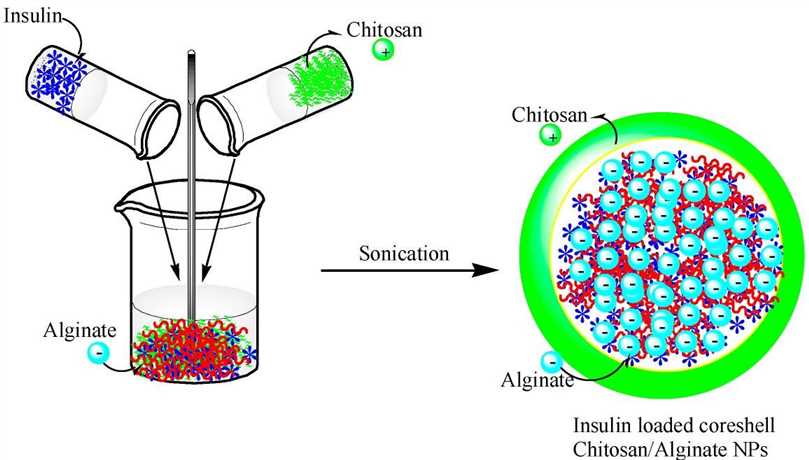The active ingredient is rarely administered directly rather in the form of a formulation or formulated drug. In addition to the active pharmaceutical ingredient, the drug form contains many components to facilitate the manufacturing process and drug delivery. Bacterial polysaccharides have potential applications in the pharmaceutical industry. Conventional oral and intravenous routes of administration do not provide ideal pharmacokinetic profiles, especially for drugs that exhibit high toxicity and/or narrow therapeutic windows. Seaweeds are an important marine resource for humans. The cell walls of seaweeds are mainly composed of polysaccharides such as alginate, carrageenan, chlorella polysaccharides, and kelp polysaccharides. The research field of polysaccharide biotechnology is currently being expanded and developed for a wide range of applications in drug delivery, tissue engineering, and biosensors. On the other hand, seaweeds often provide a large number of bioactive compounds that have functional applications in dietary options (functional foods) and biomedical fields such as pharmacology and tissue engineering.
 Fig 1. A schematic showing the preparation of chitosan-alginate NPs incorporating insulin. (Venkatesan J, et al., 2016)
Fig 1. A schematic showing the preparation of chitosan-alginate NPs incorporating insulin. (Venkatesan J, et al., 2016)
Alginates, carrageenan, fucoidan, and chlorella polysaccharides are widely used because of their biocompatibility and availability. The potential of these seaweed polysaccharides for biomedical applications has been extensively investigated by our scientists. Their advantages are:
Lifeasible continues to develop the potential of macroalgae for pharmaceuticals and is committed to providing specialist solutions for the pharmaceutical applications of seaweed. We are proud to offer a broad platform for using seaweed polysaccharides in biomedicine.
We develop alginates and their nanocomposites for bone tissue engineering to improve the mechanical strength of the extracellular matrix.
We develop algal polysaccharide-based nanoparticles (e.g., ionic gels, emulsions, and polyelectrolyte complexes) and use them as carriers for the delivery of various therapeutic molecules (e.g., proteins, peptides, anti-cancer drugs, and antibiotics). Our seaweed polysaccharide-based nanoparticles have great potential for safe and efficient drug delivery with suitable particle sizes, high drug encapsulation, and slow release drugs with high biocompatibility.
We offer in vivo and in vitro models to analyze the use of algopolysaccharide materials (collagen/alginate scaffolds, calcium alginate, chitosan-alginate composites, sodium alginate gels, alginate beads) in wound healing.
We develop biosensors such as pyroyl alginate adducts, dehydrated alginate beads, synthetic biotin-alginate adducts, multilayer polyphenol oxidase alginate encapsulation, biotinylated alginate immobilized substrates.
Lifeasible is constantly exploring the maximum potential of seaweed applications. We try to develop seaweed-derived polysaccharides for biomedical applications, including tissue engineering, drug delivery, wound healing, and biosensors. We are your trusted partner in all aspects of seaweed research. If you are interested in our solutions, please do not hesitate to contact us.
Reference
Lifeasible has established a one-stop service platform for plants. In addition to obtaining customized solutions for plant genetic engineering, customers can also conduct follow-up analysis and research on plants through our analysis platform. The analytical services we provide include but are not limited to the following:
Get Latest Lifeasible News and Updates Directly to Your Inbox
Adaptive Evolutionary Mechanism of Plants
February 28, 2025
Unraveling Cotton Development: Insights from Multi-Omics Studies
February 27, 2025